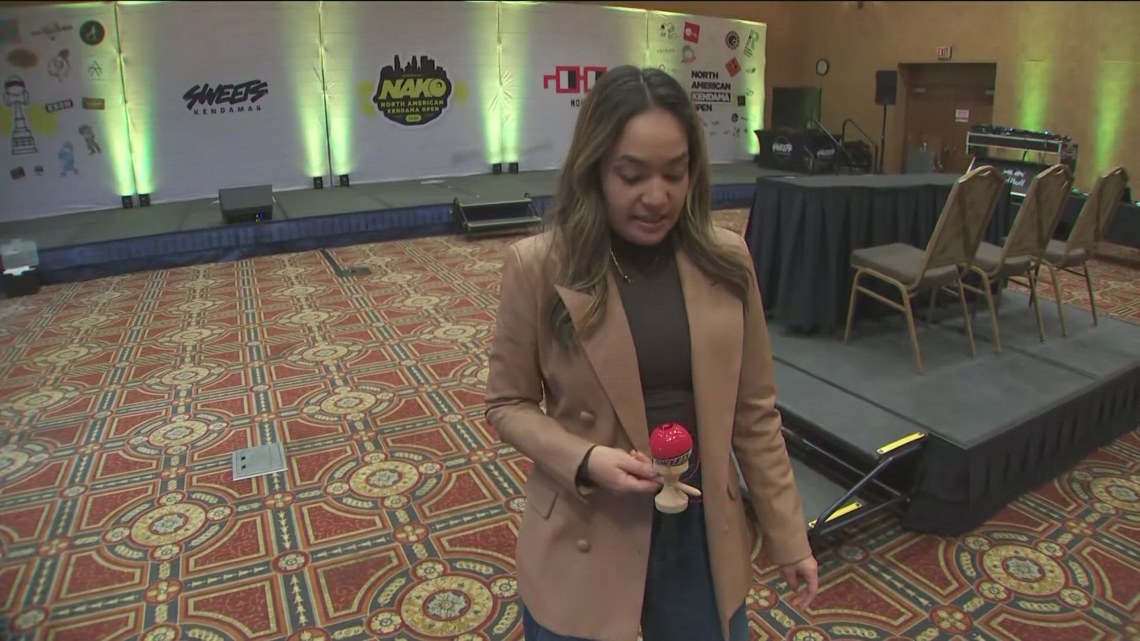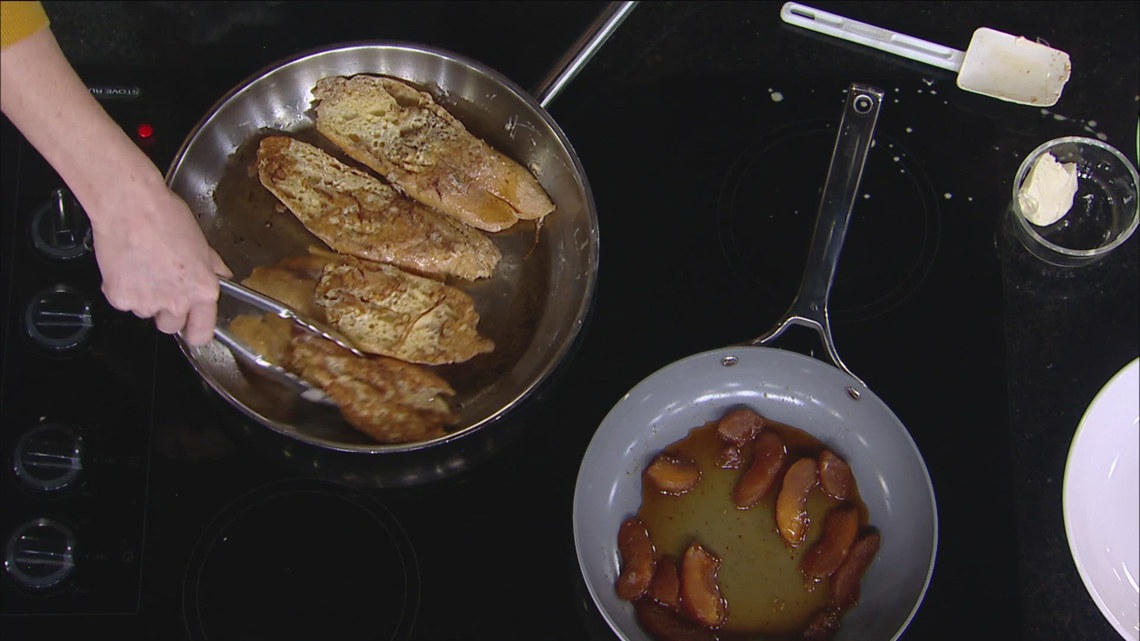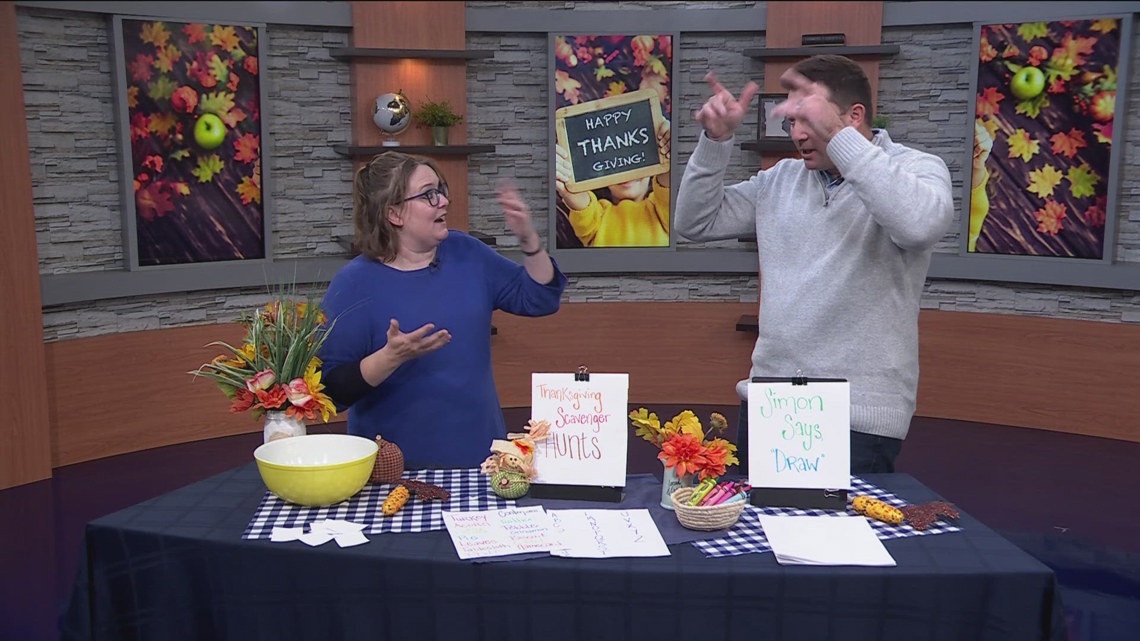Kare11
Trial begins Monday in fatal US-Canada border smuggling incident


Two men go on trial Monday, accused of helping illegally smuggle Indian nationals across the U.S.-Canada border and into Minnesota. A family of 4 froze in 2022.
MINNEAPOLIS — On the last night of their lives, Jagdish Patel, his wife and their two young children tried to slip into the U.S. across a near-empty stretch of the Canadian border.
Wind chills reached minus 36 Fahrenheit (minus 38 Celsius) that night in January 2022 as the family from India set out on foot to meet a waiting van. They walked amid vast farm fields and bulky snowdrifts, navigating in the black of an almost-moonless night.
The driver, waiting in northern Minnesota, messaged his boss: “Make sure everyone is dressed for the blizzard conditions, please.”
Coordinating things in Canada, federal prosecutors say, was Harshkumar Patel, an experienced smuggler nicknamed “Dirty Harry.” On the U.S. side was Steve Shand, the driver recently recruited by Patel at a casino near their Florida homes, prosecutors say.
The two men, whose trial is scheduled to start Monday, are accused of being part of a sophisticated human smuggling operation feeding a fast-growing population of Indians living illegally in the U.S. Both have pleaded not guilty.
Over the five weeks the two worked together, documents filed by prosecutors allege they spoke often about the bitter cold as they smuggled five groups of Indians over that quiet stretch of border.
“16 degrees cold as hell,” Shand messaged during an earlier trip. “They going to be alive when they get here?”
On the last trip, on Jan. 19, 2022, Shand was to pick up 11 more Indian migrants, including the Patels. Only seven survived.
Canadian authorities found the Patels later that morning, dead from the cold.
In Jagdish Patel’s frozen arms was the body of his 3-year-old son, Dharmik, wrapped in a blanket.
The narrow streets of Dingucha, a quiet village in the western Indian state of Gujarat, are spattered with ads to move overseas.
“Make your dream of going abroad come true,” one poster says, listing three tantalizing destinations: “Canada. Australia. USA.”
This is where the family’s deadly journey began.
Jagdish Patel, 39, grew up in Dingucha. He and his wife, Vaishaliben, who was in her mid-30s, lived with his parents, raising their 11-year-old daughter, Vihangi, and Dharmik. (Patel is a common Indian surname and they are unrelated to Harshkumar Patel.) The couple were schoolteachers, local news reports say.
The family was fairly well off by local standards, living in a well-kept, two-story house with a front patio and a wide veranda.
“It wasn’t a lavish life,” said Vaibhav Jha, a local reporter who spent days in the village. “But there was no urgent need, no desperation.”
Experts say illegal immigration from India is driven by everything from political repression to a dysfunctional American immigration system that can take years, if not decades, to navigate legally.
But much is rooted in economics, and how even low-wage jobs in the West can ignite hopes for a better life.
Those hopes have changed Dingucha.
Today, so many villagers have gone overseas — legally and otherwise — that blocks of homes stand vacant and the social media feeds of those who remain are filled with old neighbors showing off houses and cars.
That drives even more people to leave.
“There was so much pressure in the village, where people grew up aspiring to the good life,” Jha said.
Smuggling networks were glad to help, charging fees that could reach $90,000 per person. In Dingucha, Jha said, many families afforded that by selling farmland.
Satveer Chaudhary is a Minneapolis-based immigration attorney who has helped migrants exploited by motel owners, many of them Gujaratis.
Smugglers with ties to the Gujarati business community have built an underground network, he said, bringing in workers willing to do low- or even no-wage jobs.
“Their own community has taken advantage of them,” Chaudhary said.
The pipeline of illegal immigration from India has long existed but has increased sharply along the U.S.-Canada border. The U.S. Border Patrol arrested more than 14,000 Indians on the Canadian border in the year ending Sept. 30, which amounted to 60% of all arrests along that border and more than 10 times the number two years ago.
By 2022, the Pew Research Center estimates there were more than 725,000 Indians living illegally in the U.S., behind only Mexicans and El Salvadorans.
In India, investigating officer Dilip Thakor said media attention had led to the arrest of three men in the Patel case, but hundreds of such cases don’t even reach the courts.
With so many Indians trying to get to the U.S., the smuggling networks see no need to warn off customers.
They “tell people that it’s very easy to cross into the U.S. They never tell them of the dangers involved,” Thakor said.
U.S. prosecutors allege Patel and Shand were part of a sprawling operation, with people to scout for business in India, acquire Canadian student visas, arrange transportation and smuggle migrants into the U.S., mostly via Washington state or Minnesota.
On Monday, at the federal courthouse in Fergus Falls, Minnesota, Patel, 29, and Shand, 50, will each face four counts related to human smuggling.
Patel’s attorney, Thomas Leinenweber, told The Associated Press his client came to America to escape poverty and build a better life and “now stands unjustly accused of participating in this horrible crime.”
Shand’s attorney’s did not return calls seeking comment. Prosecutors say Shand told investigators that Patel paid him about $25,000 for the five trips.
His final passengers, though, never made it.
By 3 a.m. on Jan. 19, 2022, the 11 Indian migrants had spent hours wandering in gusting snow and brutal cold trying to find Shand. Many were in jeans and rubber work boots. None wore serious winter clothing.
Shand, though, was stuck. Prosecutors allege he had been heading to the pickup spot in a rented 15-passenger van when he drove into a ditch roughly a half-mile (0.8 kilometers) from the border.
Eventually, two migrants stumbled across the van. Sometime later, a passing pipeline company worker pulled the vehicle from the ditch.
Soon after that, a U.S. Border Patrol agent, on watch for migrants after boot prints were found near the border, pulled over Shand.
Shand repeatedly insisted there was no one else outside, even as five more desperate Indians wandered to the vehicle from the fields, including one going in and out of consciousness.
They had been walking for more than 11 hours.
There were no children among the migrants, but one man had a backpack filled with toys, children’s clothes and diapers. He said a family of four Indians asked him to hold it, because they had to carry their young son.
Sometime in the night they had become separated.
Hours later, the Patels’ bodies were found just inside Canada, in a field near where the migrants had crossed into the U.S.
Jagdish was holding Dharmik, with daughter Vihangi nearby. Vaishaliben was a short walk away.
Hemant Shah, an Indian-born businessman living in Winnipeg, some 70 miles (110 kilometers) north of where the migrants were found, helped organize a virtual prayer service for the Patels.
He’s accustomed to hard winters and can’t fathom the suffering they endured.
“How could these people have even thought about going and crossing the border?” Shah said.
Greed, he said, had taken four lives: “There was no humanity.”
Ryan Foley reported from Iowa City, Iowa. Associated Press writers Elliot Spagat in San Diego, Sheikh Saaliq in New Delhi, Tim Sullivan in Minneapolis and Ajit Solanki in Dingucha, India, contributed to this report.
Kare11
Minnesota Kendama Open returns to Minnesota


Kendama is a traditional Japanese skill toy consisting of a handle (ken), a pair of cups (sarado), and a ball (tama) that are all connected by a string.
PLYMOUTH, Minn. — Hundreds of people from around the world are in Minnesota this weekend to compete in North America’s largest kendama tournament.
Kendama is a traditional Japanese skill toy consisting of a handle (ken), a pair of cups (sarado), and a ball (tama) that are all connected by a string.
The North American Kendama Open (NAKO) is Nov. 15 -17 at the Crowne Plaza Minneapolis West Hotel in Plymouth. It’s become popular in part due to a Minneapolis-based company, Sweets Kendamas, and the company’s owner, Matt “Sweets” Jorgenson.
Sweets Kendamas hosts the nation’s largest kendama competitions and sells the toys at Target stores nationwide.
In partnership with the nonprofit Mindfulness Through Play, it also operates 12 kendama clubs at afterschool programs across the Twin Cities.
Besides the competition, NAKO will feature music, merchandise, workshops, video premiers and an award show.
Tickets are $60 for the weekend or $25/day.
Kare11
The Buttered Tin celebrates local harvests in fall menu


Taste the flavors of fall at this popular Minneapolis-St. Paul restaurant.
ST PAUL, Minn. — Celebrate the change in the seasons with a delicious meal off the new menu at The Buttered Tin.
James Beard-recognized chef Alicia Hinze offers breakfast, lunch and sweet treats at locations in St. Paul and Northeast Minneapolis. The new fall menu centers around local harvest and has vegetarian, plant-based and gluten friendly options.
Some of the new items are the Hot Honey Apple French Toast, Big Ol’ Bennie, TBT Hash with salmon filet, Portobello Melt and Jerk Shrimp Tacos.
The St. Paul restaurant is open Monday to Friday from 7 a.m. to 2 p.m. and Saturday and Sunday from 7 a.m. to 3 p.m. The Northeast Minneapolis location is open Monday to Friday from 8 a.m. to 2 p.m. and Saturday and Sunday from 7 a.m. to 3 p.m..
Kare11
Ideas for family fun and getting kids involved in Thanksgiving


Family Fun Twin Cities co-founder Gianna Kordatzky visited KARE 11 with some ideas to help the kids get more involved.
GOLDEN VALLEY, Minn. — Many adults equate Thanksgiving with watching football on TV, eating too much and falling asleep on the couch.
That trio of activities would likely not be high on the list of most children, who are looking for more inclusive activities for the holiday.
Family Fun Twin Cities co-founder Gianna Kordatzky visited KARE 11 Saturday with some ideas that can make Thanksgiving a blast for EVERYONE in the family, ranging from a version of Simon Says to Scavenger Hunts and The Bowl Game.
For more on these games and other awesome living room games, check out the Family Fun Twin Cities website.




